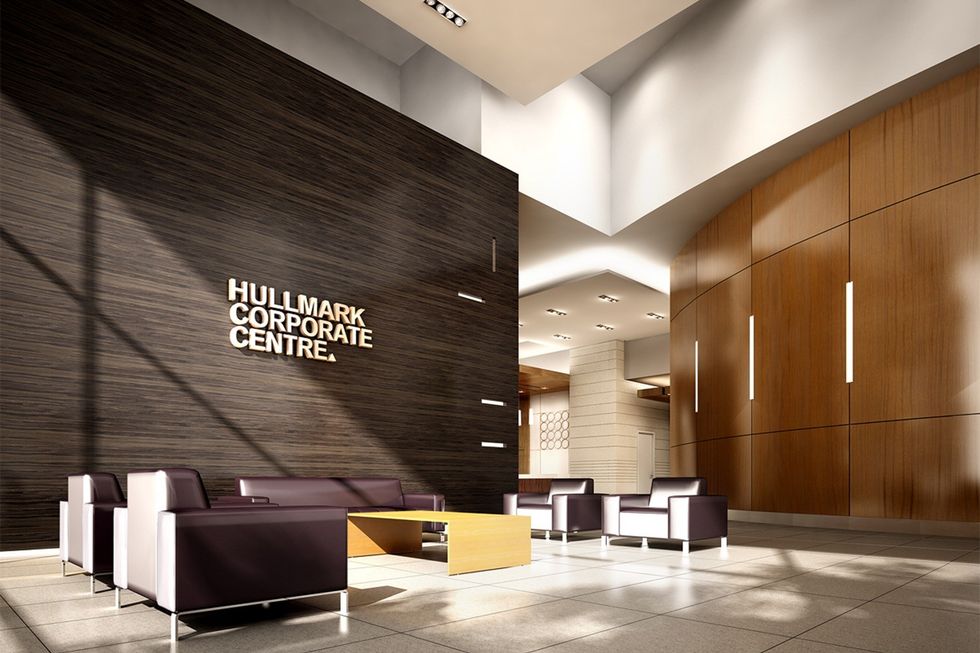
A doctor, a lawyer and a dentist walk into a bar … actually, this isn’t a set-up for a joke — they’re just celebrating their recent office condo purchases.
Office space is typically a leasing market, but some entrepreneurs — professionals such as lawyers and doctors, architects or tech startups — ask themselves the same thing as any other Torontonian: should we rent or buy?
The answer is fundamentally the same: buying has its perks.
“(By buying office condos) they build equity, not just in their business, but in their real estate holdings in their business,” says Jim Burtnick, broker and senior vice-president of sales for Sotheby’s International Realty Canada.
“I think it’s smart people who understand the value of having real estate as part of their business portfolio. Why should I be paying a landlord? Why pay for rent for the next 10 years and really have nothing to show for it?
“An end user can write off the interest of the mortgage against their business income,” he adds. “And if they sell the business, they’re not just selling the cash flow of the business, but also the real estate component.”

Burtnick’s two recent office condo projects — 7 St. Thomas (Yorkville) and 117 Peter St. (Entertainment District) — have been populated by white collar professionals “who run their own businesses, know their footprint in terms of the size they require, and are not growing or shrinking drastically.
“They’re comfortable purchasing because they know that their space requirements aren’t going to change a great deal.”
Sizing up or down is still possible, Burtnick points out — additional adjacent units can be purchased or sold off — but generally these business owners and their industries benefit from relative stability.
“I think where (office condos) might not be suitable is the King and Bay areas — the financial companies that ebb and flow with the economy. They grow and shrink in a quick fashion and, there, leasing makes more sense, as it gives them that flexibility.”

HIT THE MARK
Toronto mega-developer Tridel also dabbled in office condos for the Hullmark Centre project at Yonge and Sheppard. The development, in partnership with Hullmark, was a mixed-used project, so retail and office space was mandated by employment-use requirements.
The original plan was a conventional leasing arrangement for the 12 floors. But Jim Ritchie, executive vice-president of sales and marketing for Tridel, says the project required a different tack when there wasn’t enough interest from office-leasing clients.
“In 2010, we changed the strategy and we offered the office units for sale,” Ritchie says. “In that initial year, in 2010, we sold around 137 of 198 units. By the time the project was ready for occupancy, we were in the enviable position of having 100 per cent sold.”
Ritchie explains that, while this project was successful, office condos are a “niche market” that he says doesn’t translate to every neighbourhood and every user.
“It was successful in this location because we had a development that was sitting on two subway stops, the Sheppard Line and the Yonge Line,” he says. “We found entrepreneurs that were looking — in a prestige office space — to control their cost, and who were averse to paying rent.
“You can’t do that anywhere in the city, successfully. It’s really targeted in terms of location and the amenities of the area.”
While noting that Tridel would consider another similar project — should the right specs fall into place — Ritchie says the developer “did remarkably well in this location, but we haven’t done another since.”
THE NEXT PHASE
Burtnick sees opportunity for growth. He thinks office condos fit into major trends fuelled by the city’s hot market and the evolution of businesses and workspaces; the latter being driven by technology and millennials.
On the desirability side, Cushman & Wakefield recently called Toronto "one of North America’s most powerful growth markets” in office real estate, citing vacancy rates lower than Manhattan, Chicago and London. Perhaps that’s obvious — housing demand shows that people want to live here; it makes sense that companies would follow.
“I think if we were to look back — say, 20 years from now — on the evolution of Toronto, I think we’d say that what we’re experiencing right now is an evolution into an alpha city on the global stage,” Burtnick says. “I think we’ll see that we’re sort of Manhattan-izing.”
As for an evolving workforce, Toronto developer CentreCourt Developments recently launched the city’s first shared “co-working space” as part of the Axis condo’s amenities — a nod to the new army of freelancers or those working from home. Another trend gaining steam is meeting spaces for hire, as offices look to outsource some of the square footage they don’t need daily. Lean, flexible office space benefits the bottom line.

Burtnick — a lifelong Torontonian, “born and bred” — says the future belongs to the many, not the few. And office condos meet that need.
“The driver of the economy is small- to medium-sized independent businesses,” Burtnick says. “I think, as the economy’s changing, office space requirements are changing too. It’s no longer just the big corporations of the world that need these huge downtown locations.
“Office condos have been around a long time as a form of ownership in Asia, in Europe, and if you google ‘office condos New York’, you’ll see that it’s there too,” he adds. “This is actually the next phase of the condo-ization of Toronto.”





















